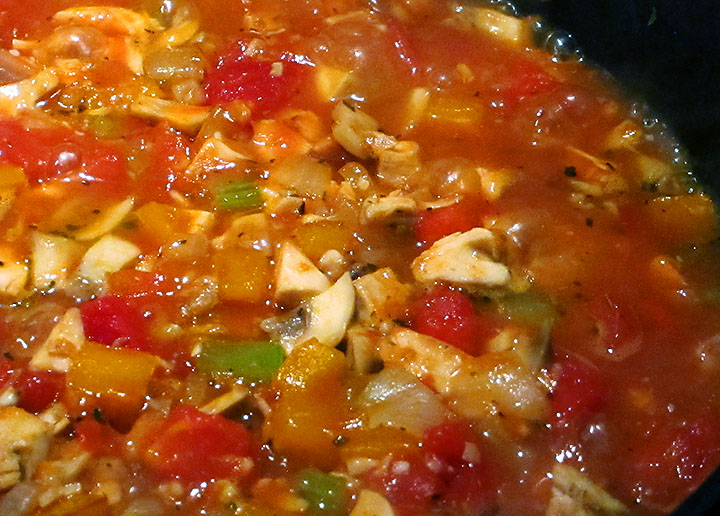One week it is reported doctors are claiming fat is bad for you and then the very next week, or so it seems, the reports flip, reporting dietary fat is of no consequence. The heart-disease-and-dietary-fat story flip flops in the media as often as a fish out of water.
According to one of my London, Ontario, doctors, J. David Spence, "Patients at risk of cardiovascular disease should limit their intake of cholesterol." Period. For Spence, this is not debatable. The well respected doctor and his co-researchers are certain that "Despite widespread belief to the contrary, it is simply not true that dietary cholesterol is harmless."
Instead of reading newspaper reports, I would suggest reading "Dietary cholesterol and egg yolks: Not for patients at risk of vascular disease." This report can be found in Pulse: The Canadian Journal of Cardiology and found posted online by the U.S. National Library of Medicine.
This report states, "A widespread misconception has been developing among the Canadian public and among physicians. It is increasingly believed that consumption of dietary cholesterol and egg yolks is harmless. There are good reasons for long-standing recommendations that dietary cholesterol should be limited to less than 200 mg/day; a single large egg yolk contains approximately 275 mg of cholesterol (more than a day’s worth of cholesterol)."
The report blames the confusing media stories on "the remarkable effectiveness of the sustained propaganda campaign of the egg producers' lobby. . . . In the past year, two studies funded by egg marketing agencies led to media reports promoting the benefits of eggs." Although Spence et al. agree egg white is a valuable source of high-quality protein, egg yolk, on the other hand, should not be eaten indiscriminately.
If eggs are bad, what about butter? I've had friends say that they once ate margarine for health reasons but have now switched back to butter. They honestly believe the fat in butter is superior to the fat used to produce soft margarine. Despite the media stories, this isn't the case.
One friend loves to say margarine is made from petroleum products, oil sands oil. It's plastic he says and he makes these false claims in front of his young granddaughter. This is a pointless urban legend according to Melissa Wdowik, a nutrition specialist at Colorado State University.
As a man battling arteriosclerosis, I shake my head. People are ignorant about the true position of most doctors when it comes to dietary fat. I lay the blame for this squarely on the media. Take this headline from the Daily Mail in Britain. "At last, the truth: Butter is GOOD for you - and margarine is chemical gunk" The story claims the public has been conned by profit-grabbing manufacturers ignoring decades of scientific evidence in order to peddle their tubs of margarine.
I'd list more links to media stories but I'll let you do the googling. You will be swamped. But approach this search by looking for university supported data rather than media stories. If you do this, you will learn that soft, non-hydrogenated margarine is best -- but like any fat that is being used as spread, it must be used sparingly.
 Life is complicated and the media hates a complicated story. No one would dispute the fact that fat is essential in our diets. Medical researchers are concerned with both the total amount of fat in our diets and the type of fat. The recommendation is to avoid trans fats completely. This bans hard margarine from our diets
Life is complicated and the media hates a complicated story. No one would dispute the fact that fat is essential in our diets. Medical researchers are concerned with both the total amount of fat in our diets and the type of fat. The recommendation is to avoid trans fats completely. This bans hard margarine from our dietsAfter eliminating trans fats, one should choose unsaturated fats over saturated ones. This cuts butter from our diets and severely restricts consumption of red meats. According to the American Heart Association, "In general, red meats (beef, pork and lamb) have more cholesterol and saturated (bad) fat than chicken and fish.
I like the attitude of Dr. J. David Spence. I first met Spence while covering a medical story for the local paper. I met Spence again recently when he sat down with my wife and me to discuss the plaque discovered in the arteries leading to my brain.
Dr. Spence laid out a battle plan for us to follow in fighting my increasing stroke risk. I don't want to give anyone the idea that the only weapon in our arsenal is a change in diet. Diet is but one arrow in a large and growing guiver. But, an improved diet, with the accompanying loss of excess weight will play an important role in the coming fight. I quote from Dr. Spence's book: How to Prevent Your Stroke.
"I encourage people to take a positive attitude, thinking of their meatless day every other day not as their punishment day but as their gourmet cooking-class day. You can learn to make chili, pasta, stir-fries, barbecued vegetables, and other dishes without meat, and to make them delicious not with butter and cheese, but with herbs, spices, onions, green peppers, lemon juice, balsamic vinegar, and so on."
The doctor swayed me. My wife and I are going to try the Mediterranean diet made famous by the cooks on the Isle of Crete. Before we head off for Chapters to find a Med-diet cookbook, I'm going to check out the foodie recipes posted by Elena Paravantes on her website "Olive Tomato." But my first foray into Mediterranean cooking will be one of recipes given to me and my wife by Dr. Spence. Stay tuned.
 |
| My first attempt at Mediterranean cooking, delicious on a bed of brown rice. |





No comments:
Post a Comment